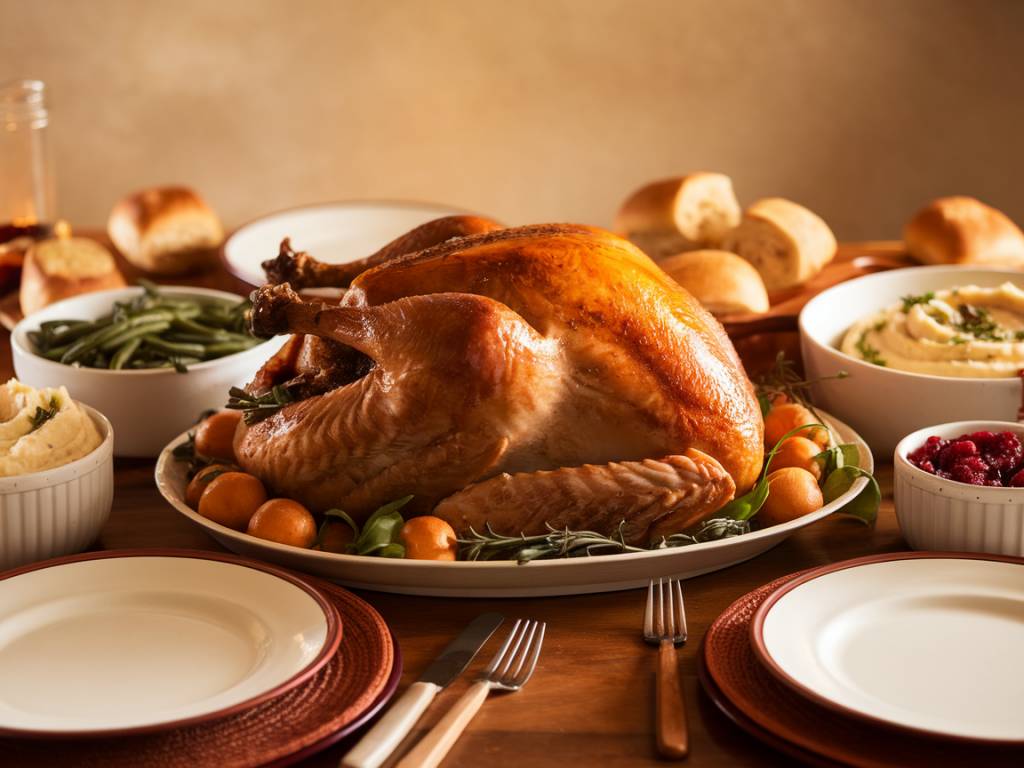
Getting to the Heart of « Talk Turkey »
Hello readers, it’s Sean here, ready to tickle your linguistic funny bone. Ever heard someone say they want to « talk turkey »? You might imagine a Thanksgiving-related chat or discussions about poultry farming. But hold your horses—or should I say your turkeys? The phrase has absolutely nothing to do with either! Let’s dive into the colorful origin and peculiar uses of this delightful expression.
The Origins: Gobble Up History
The idiom « talk turkey » goes way back, and it’s packed with interesting, albeit slightly mysterious, history. How did these feathery birds, which are native to North America and notorious for their gobbling, get roped into casual and serious conversations alike?
One popular theory suggests that early interactions between Native Americans and European settlers included bartering turkey meat. Apparently, these negotiations were straightforward and no-nonsense. Over time, « talk turkey » evolved to mean speaking plainly and getting to the heart of the matter without any fluff. Fun how turkeys went from feathered fauna to verbal VIPs, huh?
Deciphering the Modern Meaning
Today, when someone says they want to « talk turkey, » they’re not inviting you over for a grand feast. Instead, they’re signaling a desire for some genuine, honest talk. Imagine you’re in a lengthy, convoluted meeting, filled with jargon and peripheral issues. When you finally can’t take it anymore, you might say, « Can we just talk turkey here? » indicating you’re ready to skip the small talk and cut to the chase.
Examples of when you might use the phrase:
Common Misunderstandings
Though it’s a straightforward idiom once you get the hang of it, « talk turkey » can sometimes trip people up. For instance, someone new to the phrase might think it implies idle chatter or informal conversation. Boy, are they in for a surprise when they realize it’s quite the opposite!
Remember:
Global Variations: Gobble Globally
You might be wondering if this idiom has any cousins in different languages or cultures. Interestingly, while the exact phrase « talk turkey » is unique to English, many languages have their own ways of expressing the need to speak candidly.
For instance:
It’s fascinating how different cultures have developed their unique ways of saying, « Let’s cut to the chase, » or should I say « cut to the gobble »?
Turkey Trivia to Amaze Your Friends
Now that we’ve thoroughly talked turkey, how about some fun turkey-related facts to spice up your next conversation? You never know when these might come in handy, maybe even during a chat when you literally are talking turkey!
Feathering In New Uses
Adding idioms to your linguistic toolkit can definitely spice up your interactions. Using « talk turkey » in the right context not only makes you sound more seasoned but can also help you push through layers of unnecessary dialogue to get to the crux of the matter.
Next time you feel a conversation going round and round in circles, remember our feathery friends and boldly declare your intention to « talk turkey. » Picture the bewildered yet impressed faces around you as you steer the discussion to clearer, more honest waters.
So there you have it, folks! Whether you’re in a boardroom or having a heart-to-heart with a friend, don’t shy away from talking turkey. Trust me, it’s the best way to get straight to the point with a dash of feathery charm.
Keep those conversations flowing, and may your verbal exchanges always be as satisfying as the tastiest Thanksgiving feast!
Signing off with a gobble,
Sean


